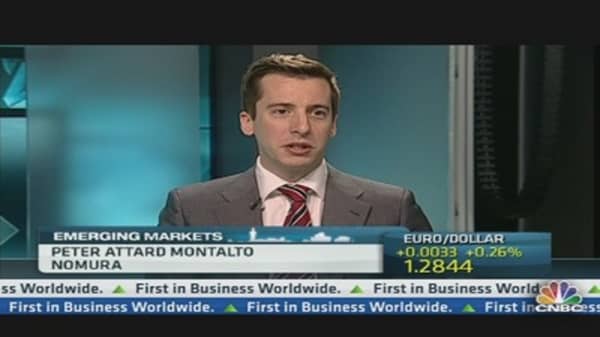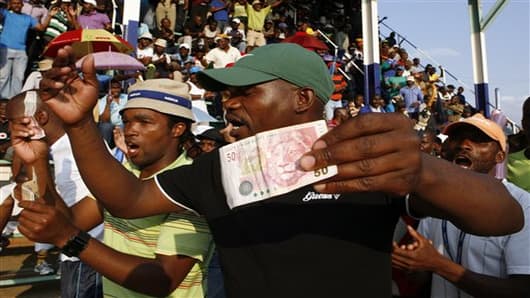The South African rand tumbled for a ninth session in a row on Tuesday to a new four-year low after an industrial union demanded a hefty pay hike. That raised fears that labor problems that began in the mining sector may be spreading across the economy.
According to one analyst, the mining sector troubles have also increased the chances of another credit rating downgrade, which has the potential to hit the attractiveness of Africa's largest economy as an investment destination.
(Watch This: South Africa Labor Unrest Pushing Up Costs)
"We will see the rand weaken a lot further from here as this develops," Peter Attard Montalto, director and emerging market economist at Japanese investment bank Nomura, told CNBC.
"This has spread across now into the gold and coal mining sectors…and into the long end of the credit curve, because people are now considering the risks of a downgrade. Credit ratings agencies have talked actively about further violence and strike action being a trigger for a sovereign downgrade."
(Read More: Why Gold's Fall Is No Big Deal for South Africa)
South African platinum and gold producers have been subject to a series of violent strikes which began in early 2012 and included a violent confrontation at the Marikana mine in August last year, where 34 striking miners were allegedly shot dead by police.
Over the weekend, reports emerged that the National Union of Mineworkers had called for pay rises of up to 60 percent. Last week, a wildcat strike at Lonmin, the world's third biggest platinum producer, also renewed fears of a resurgence of violence.
Investors have scrambled to dump the South African currency in response. The rand has fallen around 4.5 percent over the past week, weakening to 9.4925 to the dollar on Tuesday.





